What Is a Business Consultant?
What Is a Business Consultant?

Employing a consultant can assist organizations in enhancing their performance and adapting where necessary to reach their goals of success. Business consultants assist organizations in overcoming obstacles, growing their revenue, and expanding their operations. It is absolutely necessary to collaborate with business consultants who have a history of accomplishments and experience working with businesses that are comparable to your own.
There are a few different pricing structures that business consultants may use, including charging by the project or the hour, or requiring you to pay retainers on a daily or monthly basis.
This essay is geared toward business owners of both large corporations and small companies who are considering hiring a business consultant.
The vast number of activities that must be completed in order to ensure a company's success makes it difficult to run a small or medium corporation. It is very hard for owners of businesses to handle all aspects of their operations on their own, including bookkeeping, human resources, and technological assistance.
They do not, however, have to figure out everything on their own because it is so simple to hire consultants. We will discuss the role of a business consultant and the ways in which hiring one might benefit the growth of your company.
What exactly is it that a business consultant does?
A professional who possesses a broad range of competencies and offers assistance to owners of businesses in the course of their activities is known as a business consultant. The education they've received combined with their prior work experience makes consultants extremely competent.
In addition to this, business consultants offer management consulting services, which are aimed at assisting firms in improving both their output and their efficiency. These experts examine firms in order to identify problems and devise solutions, all while assisting clients in achieving their objectives.
When business owners find themselves in a position where they require assistance or a fresh perspective on the direction they have chosen for their firms, or a catalyst for change, they should give serious consideration to working with business consultants.
Why should you consider hiring a business consultant?
There are many different reasons why owners of businesses should seriously consider working with consultants. The following is a selection of the many services that can be obtained from consultants:
- Providing knowledge and experience in a certain market
- Identifying problems
- Adding to the current workforce Starting the transition process
- Providing a neutral perspective
- Instruction and training of staff members
- Having to deal with unpleasant tasks, such as reducing staffing levels
- Restoring life to a company or organization
- Establishing a brand-new company
- Having an impact on other individuals, such as lobbyists
What does a business consultant do?
In most cases, the process that a business consultant follows consists of the following three stages: discovery, evaluation, and execution.
The Uncovering
The discovery phase is the initial step in the process for any business consultant, and its primary objective is to gain an understanding of your company. A skilled business consultant will invest the time necessary to learn as much as they can about a company from the organization's owner as well as its staff. The following tasks will be performed by the consultant:
- Tour your facilities.
- Hold a meeting with the staff as well as the board of directors.
- Conduct a financial analysis of your organization.
- Read all company materials.
- During the discovery phase of the project, the business consultant will learn the specifics of your company's objective and the operations that are currently being carried out.
Evaluation
After the business consultant has gained a comprehensive grasp of your organization, they will move on to the phase of evaluation, the purpose of which is to determine the areas in which changes are required. During this phase, you will determine the strengths and weaknesses of your firm, as well as the problems that are currently occurring and those that are anticipated in the near future.
- Examining pre-existing issues while also locating new issues It is the responsibility of the consultant to investigate issues that have already been highlighted by the owners and management. As a result of their objectivity, consultants are also able to identify concerns that were previously unknown.
- Trying to find a solution: A business consultant's job is to analyze a company's challenges, devise plans to address those challenges, and lay out strategies for capitalizing on chances to expand the company's operations, raise earnings, and improve efficiencies. Take your organization as an example; let's assume that the department of sales is especially powerful, but the department of marketing is particularly weak. This presents an opportunity for you to expand the resources available for marketing and to make the most of your sales staff.
- During this process, you will want to place a strong emphasis on communication and feedback as two of the most important parts.
Contact: During the phase of the review, all members of your team must keep an open and clear line of communication with the consultant.
Constructive criticism should be taken from the advise that the business consultant has given to you and the other members of your team. The feedback that the consultant provides is not intended to be taken personally. Even though you and your employees have a strong personal connection to the company, the absence of a broader perspective can be a barrier to positive change and progress in the company. The consultant brings impartiality as well as a new point of view. Naturally, you should provide the business consultant with your own thoughts and opinions, but you should also keep an open mind to the possibility of hearing something new.
Implementation
The restructuring stage, also known as the implementation of the plan, is the third step that the consultant should start once they have reached an agreement with your firm over a plan. During this stage of the process, the consultant will work to improve upon your assets while also removing any liabilities. In addition to this, they keep track of how well the plan is working and make any necessary adjustments.
Various kinds of business consultants and their services
There are many distinct kinds of business consultants, each of whom specializes in a different aspect of running a company.
Consulting firms specializing on management and strategy
Business consultants who specialize in strategy and management may provide a wealth of industry knowledge to your company, assisting you in expanding your operations, expanding your customer base, and increasing your revenue.
The following are some of the ways in which consultants specializing in management and strategy might be of assistance to your company:
Grow your business by entering adjacent markets or by raising your profile in the market you already occupy.
You will need to restructure your business model in order to develop a strategy that is efficient in terms of cost.
Strengthen the capabilities of your company.
Acquire a brand new commercial enterprise.
Consolidate your operations with those of another company, or transform the organizational makeup of your company.
Assume the responsibilities of middle management when the organization is going through a transformation.
Operations consultants
Working with business consultants who focus on operations and can assist you in improving your day-to-day processes is something you should consider. These business experts take an inventory of your existing business model and determine the most effective strategy to generate the same high-quality results in a fraction of the time and cost that would otherwise be required. These experts are also helpful in terms of quality control and learning how to tune and optimize your production in order to achieve better outcomes.
Financial consultants
A financial expert will be able to provide you with a more comprehensive picture of the state of the finances of your company. Their primary role is to offer advice regarding investment choices and to assist you in determining the most effective approach to managing the assets and liabilities associated with your company. It's possible that some financial consultants have even more specialized areas of expertise, such as financial planning and advising your company on taxes, daily spending, and the finest retirement plans.
Human resources consultants
You can get assistance with your human resources functions from the best HR outsourcing organizations as well as from independent HR contractors. These consultants are able to take over the day-to-day HR responsibilities of your company, such as the recruitment and retention of employees, the processing of payroll, the performance management of employees, and the performance management of administrative chores.
Consultants in advertising and marketing positions
Consulting firms specializing in marketing assist companies in determining their capabilities as a brand and developing strategies to capitalize on those capabilities in order to raise the profile and visibility of the brand. A marketing consultant can be useful whether you need a new logo for your company or a strategy for social media; either way, they can help you increase the scope of your organization.
What about businesses that provide consulting services?
In addition to employing the services of a self-employed expert, you have the option of working with a specialist business in order to meet your requirements for consulting. It is unlikely that large consulting firms such as McKinsey & Company or BCG would be a good fit for the requirements and constraints of a small business's budget, but a local firm might be an excellent choice.
To get started, go to Google and type in your problem along with the location you're having it (for example, "brand strategy firm in New York"), then look at the results. The search is going to bring up companies that you have probably never heard of before, but taking a deeper look at the work they've done in the past and the feedback they've received from previous customers will help establish whether or not they'd be a suitable fit. Hiring a local company also means you have a larger chance of recognizing someone on their client list or running into them in the past, especially if the company is involved in the same industry.
The following are some of the benefits of working with a consulting firm:
- Extensive resources
- Multiple professionals' expertise
A well-known brand with a considerable number of testimonials
The following are some advantages of working with individual consultants:
Affordability
The ability to be flexible in regard to scheduling and location
Capability of devoting their undivided attention to the resolution of your case
Your company's requirements and the way you like to get things done will determine whether you should hire an individual consultant or a consulting firm.
How to pick the right consultant for your company
The process of selecting a business consultant who is able to meet the requirements of your company can feel overwhelming. It is crucial to know where to begin, and then to take things one step at a time, regardless of whether you are seeking for someone to help with your high-level strategic demands or a specialty, solution-oriented professional to boost your SEO or product-sourcing operations.
Select the ideal business consultant for your needs.
Finding the appropriate business consultant to work with can be one of the most difficult tasks for a company's management or owner. It is important for the consultant to have a keen sense of organization and attention to detail, in addition to a strong love for the work that they do. It is critical to look for a consultant that either has experience working with issues similar to those your company has or knowledge in the field in which you operate.
Utilize the connections you already have. Utilizing the connections you already have is a good place to start when looking for a business consultant. A personal recommendation from a coworker, business partner, or other company owner who has been in a comparable position is frequently more reliable than generic reviews or accolades. Inquire with the people you know if they know of any specialists in the field who might be able to aid you with the issue that you have.
Investigate the specialized market areas. Investigate specialized marketplaces that can assist you in finding consultants based on your field of interest, your budget, and your location. Catalant, Graphite, and Business Talent Group are just few of the popular websites. Don't be afraid to take advantage of other social sites as well, such as LinkedIn. The availability of numerous recommendations is typically a solid indicator of the competency of a potential consultant. Conduct a search using terms that are pertinent to your problem, and pay particular attention to the results that come up first. [Obtain additional information regarding the use of LinkedIn for your company.]
Visit freelance sites. If you are looking for someone who is an expert in a specific field, you might want to investigate prominent freelancing websites such as Upwork, Dribble, Fiverr, and Freelancer. Consider the popularity of possible consultants, as well as their levels of engagement and evaluations from former clients.
Vet your possible business consultant.
Ask questions. If you are going to rely on a personal referral, make sure you ask your colleague in-depth questions about their experience with the consultant, the process that the consultant uses, and most importantly, the results of their consulting job. If you ask your coworkers, they might be able to provide you with some useful information about the long-term effects of adhering to the consultant's advice rather than focusing on the short-term benefits.
Investigate the consultant's experience and credentials before hiring them. Examine the consultant's past, particularly their educational history and any credentials that are pertinent to your field. If they demonstrate a willingness to try new learning options and keep their skills current, this is an encouraging indicator.
Inquire with the consultant regarding their practical experience. In the world of business, having direct experience is extremely valuable. Do you think that somebody who just got out of college and started calling themselves a consultant would know anything more than you do? You could want to look at hiring consultants who have previously owned or successfully managed small firms, enterprise organizations, or specialized divisions.
Check to see if the experience they have may be used to your company. A person who was once the CEO of a bank may amaze you, but ask yourself if they have the skills and expertise necessary to make your cupcakery a successful little business. They might, however if you're also looking at a consultant who used to run a restaurant and now makes his career by effectively assisting small eateries in expanding their businesses, this consultant might be a better fit for your company. Look for consultants who have experience working in your sector and with companies that are comparable to your own in terms of style, size, requirements, and goals.
Visit their website for more information. In addition to this, you need to investigate the consultant by looking through their website and other documents. Look for photographs that have been taken by professionals and information that has been well documented regarding their services. Additionally, thoroughly study any contracts and consulting fees.
Investigate their history of providing consultation services. You are not just looking for a consultant with the appropriate amount of experience; rather, you are looking for a consultant who has a track record of success working with businesses that are comparable to your own. Inquire about references and seek a portfolio or list of companies that the consultant has previously worked with. Find a consultant who has assisted other firms in overcoming the kinds of issues you are encountering or who has built businesses that are very similar to yours, and then get in touch with those businesses to find out if they were happy with the services that the consultant provided.
Determine whether or not they are a suitable consultant for the position.
Have a conversation with a possible consultant whose references are stellar and who has a track record of being both trustworthy and successful to determine whether or not they are the best choice for the position. Outline your concerns and expectations as specifically as possible, and assess whether or not you feel at ease with their approach and demeanor. If the consultant meets all of your requirements, it could be time to move on to the next step.
The establishment of a consulting agreement or contract for a firm.
It is time to confirm the arrangement once you have successfully located an outstanding consultant, performed your due diligence and vetting, received satisfying and verifiable references, clearly outlined your pain points and expectations, and ensured that you are comfortable with their style and personality.
Contracts or agreements with consultants are often written up for a period of three to six months, with the option to renew after that period of time. In most cases, specifics such as the names of the parties responsible, consulting parameters, pricing structures, payment schedules, stated deliverables, and established deadlines are included in the agreements.
Your consultant will have enough time to provide the results that were promised if there is a deadline that has been clearly outlined and confirmed. This will also encourage timely progress.
How exactly does one gauge the level of success achieved by a business consultant?
It is fair to define goals and measure deliverables, in contrast to employee performance reviews, which are guided by a universally recognized and objective approach. However, there is no such technique for monitoring consultant performance. The management of employees using this method is analogous to the management by objectives method developed by Peter Drucker and the SMART principles.
Establish targets that are both comprehensible and measurable. Make it a priority, right at the start of your project, to sit down with your consultant and formulate crystal-clear goals that are as SMART (specific, measurable, attainable, relevant, and time-oriented) as they possibly can be.
Determine the concrete outcomes you are hoping to achieve. Determine the financial and other measurable results that you want to achieve, such as increased revenue, annual savings, or reduced employee turnover.
Determine the intangible results that you are looking to achieve. Make sure that the consultant is aware of the intangible effects that you want to see, such as an enhanced morale, a strong execution of business values, and increased customer satisfaction.
Track the level of advancement achieved at each stage. Track the accomplishment of your goals at each stage of the collaboration.
Evaluate KPIs. At the conclusion of your consultant's engagement, it is important to conduct an analysis of the key performance indicators (KPIs) that were established.
Use a consultant questionnaire. At the beginning of a project, a consultant may present a detailed questionnaire that covers the complete business environment as well as intended areas for improvement. The consultant may then offer the same set of questions at the end of the project. You will have a much simpler time comparing the outcomes using this method, particularly with regard to the intangibles.
It may be beneficial to answer the following questions in order to provide an evaluation of the performance of the consultant:
- Have the key performance indicators been reached, and have they been delivered on time?
- Was the process of working together straightforward, and did the consultant remain responsive and helpful throughout?
- They did not equip you with the essential skills and resources to build your firm, did they?
- What are immediate, intermediate, and the long-term impacts that their effort will have?
- What was the return on investment (ROI) that you saw from the consulting services?
Business consultant FAQS
How much do people often pay for the services of business consultants?
In the year 2020, a management consultant made a median annual salary of $87,660, which equated to an hourly wage of $42.14. This information was provided by the Bureau of Labor Statistics. However, the fees for consulting are often higher so that the consultant can cover their own company expenditures.
It is not always the case that consultants bill their clients by the hour. The following are some common fee arrangements, along with the percentage of consultants that prefer them, as uncovered by a survey on consultant fees conducted by Consulting Success:
- Per project – 31%
- Amount Paid Per Hour: 24%
- The monthly retainer will be fifteen percent.
- 13% on a daily basis as the rate
- 17% of decisions are focused on value and return on investment.
According to the findings of the study, 40.5% of consultants make up to $5,000 per project, while others make more than $100,000 per project. The price tag will be established based on the dimensions (size, scope, and length) of the project.
The hiring of business consultants incurs a sizeable financial burden; however, the feedback and planning provided by these professionals can assist you in expanding your customer base and boosting your profits, as well as in resolving issues and locating opportunities that will ensure your continued success in the future.
How exactly does one calculate the return on investment (ROI) of using a business consultant?
When calculating ROI, it is necessary to look at a number of specific important criteria in order to establish how well the consultant did their job. The majority of businesses analyze their quarterly net profits in the quarter prior to engaging a business consultant, and then reevaluate their quarterly net profits in the following quarter or two after putting the consultant's recommendations into action. Before you calculate the return on investment, you need to first deduct the price you paid for the consultancy.
When looking to hire a business consultant, it is essential to take into consideration the return on investment (ROI). If you plan to pay a business consultant more than $5,000 for their services, you should expect to receive a documented return on investment (ROI) at the conclusion of the project. Established business consultants should be able to demonstrate to potential customers that they have previously generated a return on investment (ROI) using the data they collected.
According to the findings of The Predictive Index's survey, 27 percent of the companies polled decided against employing a consultant due to the fact that the consultant was unable to provide proof of the return on investment (ROI). This is by far the most common justification that businesses give for avoiding the use of consultation services, and it is the responsibility of the consultant to make use of big data in order to demonstrate historical ROI. [Gain a better understanding of the big data solutions that are available to small businesses.]
When hiring a business consultant, how do you decide how much money to allocate for their services?
It is possible that employing a consultant will result in a large financial outlay. In light of the fact that prices can differ, it is vital to design a spending plan that is both reasonable and in line with expectations. You might want to think about basing the cost of the consultant's services on a certain proportion of your overall revenue. For instance, if your monthly sales are $10,000, paying a monthly consultant fee of $5,000, which would amount to 50% of your earnings, would not be the best action. A fee of five percent of revenue up to one hundred thousand dollars appears more realistic.
You may cut expenses and mitigate risks associated with your consulting project if you plan it out clearly and divide it into several parts. During each phase, you will evaluate how things are going. For instance, if you use the marketing experience of a consultant to bring a variety of products to market, you should analyze their efforts after the first launch and possibly apply the same technique to the rest of your product line without needing continuous services.
During a free consultation, many consultants will be able to advise you on how to define the scope of your project as well as the financial parameters associated with it. This contact can also help you test the waters and decide whether or not the consultant is a good match for the requirements of your organization.
Should you use a virtual consultant?
Determine whether the work must be done on-site or whether it can be carried out remotely before determining the needs and key performance indicators for your consulting assignment. If you choose to work with a virtual consultant, you won't be limited to the available talent in your immediate area; as a result, you may be able to find better candidates. In addition to this, it might lessen the expense of hiring a consultant and provide flexibility.
When it comes to specialists in specific fields, particularly in the field of digital technology, working remotely, provided the parameters are well established, might be to everyone's advantage. On the other hand, certain consulting tasks necessitate hands-on participation from your team and lend themselves more effectively to in-person coordination.
When working with a business consultant, what are the most prevalent errors that can occur, and how can they be avoided?
When working with a business consultant, it's easy to make a few of the same mistakes that other people do, which can hinder your chances of being successful.
Employing without hesitation the consultant with the highest number of previous successes or accolades: When selecting a consultant, although a successful track record, excellent ratings, and qualifications are all significant components, it is even more important to make sure that the consultant's experience is pertinent to both your sector and the business case at hand. Make sure the consultant you choose is up to date on the relevant trends, technologies, and approaches, or better yet, is already ahead of the curve in these areas.
Employing a person who is skilled in a variety of areas: If a consultant or consulting business promises to "know it all," there is a chance that they do not have the specialized knowledge or abilities that you need. Find a consultant that specializes in the area in which you require assistance, has a wealth of experience, and can assist you with meeting your specific requirements.
When a consultant is treated like an employee, the following things can happen: It is absolutely necessary to treat your consultants as equals, respecting their working style as well as their present workload and timetable. It is possible that they will not be available on short notice or will refuse to assist with a work that falls outside the parameters of the assignment. They won't be completely aware of everything that goes on at your organization, and they might decide against putting in overtime. They are not there to take up a position on your team but rather to provide you with guidance and suggestions that will help your business run more smoothly. In point of fact, the value of consultants lies in the fact that they bring an outside perspective to the table.
In defiance of the action plan that was outlined: It is the responsibility of the consultant to sketch out a plan and position you and your team for success; nevertheless, you and your team are the ones who are accountable for bringing about change and putting the consultant's recommendations into action. If you are hesitant to "walk the walk" once the consulting job is complete, you will not perceive the value in hiring a business consultant.
In spite of the fact that you are paying for and relying on your consultant's expertise, it is essential to reflect on your own experience, apply common sense, and treat their recommendations as helpful directions rather than a strict set of rules. In other words, you should avoid treating their suggestions as absolute truth. Questioning their recommendations is not something you should be hesitant to do. You are the one who is most familiar with the ins and outs of your company, and you are the one who will be responsible for dealing with the long-term repercussions of the recommendations made by the consultant.
When is it a good time to bring in a business consultant, and how do you do that?
Employing a business consultant is not a solution that is applicable to every situation in the same way. You will need to do an analysis of your organization with regard to the following essential aspects:
Capitalizing on one's human assets
Strategic planning for the operations of a business
The maintenance of compliance and regulations
The process of preparing one's finances
If your company is having trouble in any of these areas, it is strongly recommended that you look into hiring a business consultant who is an established authority in the relevant field. If you notice any declines in profits that you can't explain, this could be another sign that it's time to hire a business consultant who can identify potential reasons for the decrease and suggest ways to remedy them. If you can't explain any declines in profits, this could be another sign that it's time to hire a business consultant.












